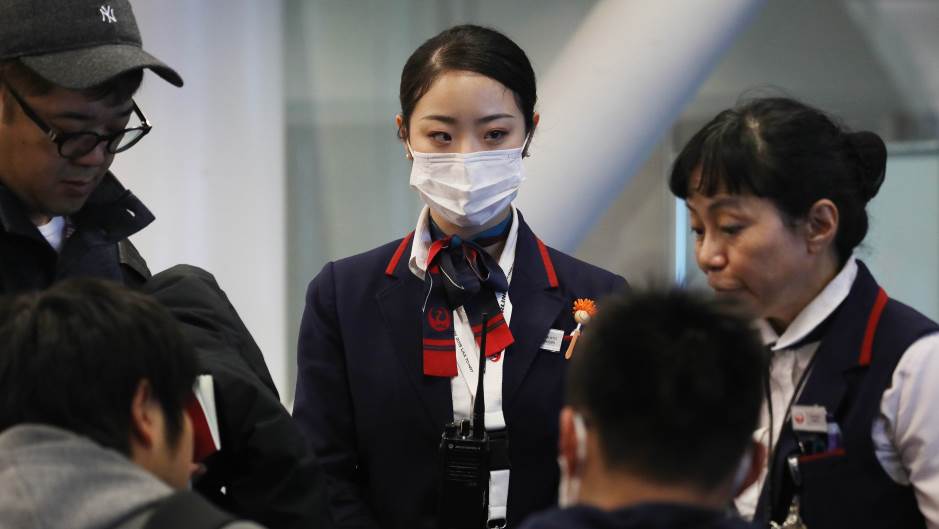
The deadly outbreak of a novel coronavirus has the world on edge, but it has not yet developed into a pandemic, according to the World Health Organization.
Although WHO has declared the outbreak a "public health emergency of international concern," the outbreak has not met the criteria needed to be described as a pandemic when it comes to its geographical spread and impact, WHO Director-General Tedros Adhanom Ghebreyesus said during a press briefing with reporters on Monday.
"Our decision about whether to use the word 'pandemic' to describe an epidemic is based on an ongoing assessment of the geographical spread of the virus, the severity of disease it causes and the impact it has on the whole society," Ghebreyesus said during the briefing.
"For the moment, we are not witnessing the uncontained global spread of this virus and we are not witnessing large-scale severe disease or deaths," he said. "Does this virus have pandemic potential? Absolutely it has. Are we there yet from our assessment? Not yet.
"So how should we describe the current situation? What we see are epidemics in different parts of the world, affecting countries in different ways and requiring a tailored response."
As of Monday, more than 79,000 people have been infected and more than 2,600 people have died around the world from the novel coronavirus outbreak, according to WHO.
In January, WHO declared the novel coronavirus outbreak a public health emergency of international concern, which WHO defines as "an extraordinary event" that constitutes a "public health risk to other States through the international spread of disease" and "to potentially require a coordinated international response." Previous emergencies have included Ebola, Zika and H1N1.
Yet for a pandemic to be declared, a "worldwide spread" of the disease, officially called Covid-19, would need to be determined among some other factors.
What is a pandemic?
A disease outbreak is the occurrence of disease cases in excess of what's normally expected, according to WHO. An epidemic is more than a normal number of cases of an illness, specific health-related behaviour or other health-related events in a community or region.
A pandemic is defined as the "worldwide spread" of a new disease. The last pandemic reported was the H1N1 flu pandemic in 2009, which killed hundreds of thousand worldwide.
The word "pandemic comes from the Greek 'pandemos,' which means everybody. Demos means the population. Pan meaning everyone. So 'pandemos' is a concept where there's a belief that the whole world's population will likely be exposed to this infection and potentially a proportion of them fall sick," Dr Mike Ryan, WHO executive director of health emergencies programme, said during Monday's briefing with reporters.
"What we don't understand yet in Covid-19 are the absolute transmission dynamics," Ryan said.
"So we're in a phase of preparedness for a potential pandemic," he said. "Let's focus on what we can do and what we need to do, which is prepare. When we mean prepare, we mean prepare to detect cases, prepare to treat cases, prepare to follow contacts, prepare to put in place adequate containment measures."
The United States has taken measures to prepare for a possible pandemic, Dr. Nancy Messonnier, director of the US Centers for Disease Control and Prevention's National Center for Immunization and Respiratory Diseases, said during a press briefing with reporters on Friday.
"We don't yet have a vaccine for this novel virus, nor do we have a medicine to treat it specifically. We are now taking and will continue to take unprecedented aggressive action to reduce the impact of this virus, that it will have on the communities in the US. We are working with state, local and territorial health departments to ready our public health workforce to respond to local cases and the possibility this outbreak could become a pandemic," Messonnier said.
That means working on availability of medical supplies, reinforcing infection control principles within health care systems and planning for "surges of people seeking and requiring care," she said.
"We're working with businesses, hospitals, pharmacies, clinicians, manufacturers and distributors to communicate about these measures and what they can do to get ready," she said.
She added that the CDC has been reviewing its guidelines and other materials on preventing "pandemic influenza" and it plans to adapt those for a possible coronavirus pandemic.
Dr Anthony Fauci, director of the US National Institute of Allergy and Infectious Diseases, said earlier this month that there is no actual scientific, definitive definition of what constitutes a pandemic.
"It really is borderline semantics, to be honest with you," Fauci said, adding that there could be arguments on either side as to whether the coronavirus outbreak could be described as a pandemic.
"I think you could have people arguing each end of it," he said. "Pandemics mean different things to different people."
CNN's Michael Nedelman and Elizabeth Cohen contributed to this report.
Kakvo je tvoje mišljenje o ovome?
Učestvuj u diskusiji ili pročitaj komentare





 Srbija
Srbija
 Hrvatska
Hrvatska
 Slovenija
Slovenija







